Best WhatsApp Messenger Alternative are When looking for a dependable and flexible substitute for WhatsApp Messenger, Telegram shows to be a very attractive choice. Telegram sets itself apart with an intuitive user interface, strong security measures, and a dedication to user privacy. End-to-end encryption is used by the platform for private chats, adding an extra degree of protection for private exchanges. Large group chats, file sharing up to 2GB per file, and flawless device synchronisation are further features that Telegram offers. Because it is cloud-based, users may access their media and messages from any device that has the programme loaded.
Furthermore, Telegram is a great option for companies and content creators because of its cutting-edge features like Channels, which allow users to broadcast messages to an infinite audience. Telegram is a great option because of its dedication to open-source development, vibrant community, and all-inclusive chat experience that prioritises user privacy and cutting-edge functionality.
How Can Choose Best WhatsApp Messenger Alternative?
Selecting the ideal alternative to WhatsApp Messenger requires taking into account a number of important aspects in order to satisfy your unique requirements. The following criteria will assist you in making a well-informed choice:
Features related to security and privacy: To keep your interactions safe, look for a messaging app that places a high priority on end-to-end encryption. Verify the app’s data processing procedures and privacy statement to be sure your information is treated securely.
- Advertisement -
User Interface and Experience: Choose an alternative that has features that suit your communication style and an easy-to-use UI. Think about how simple it is to navigate and how many customisation choices are available.
Cross-Platform Harmoniousness: To make sure you can connect with a wide variety of contacts, pick a messaging programme that functions flawlessly on many platforms (iOS, Android, web, etc.).
Media and file sharing capabilities: Examine the app’s file-sharing features, taking into account the largest file size and supported file kinds. Think about the level of sharing media, including voice messages, movies, and pictures.
Features of Group Chat: Look for features like the ability to share different kinds of information within group chats, moderating tools, and restrictions on group chat size.
Options for Sync and Backup: Make sure the app has dependable synchronisation and backup features to avoid data loss and facilitate seamless device switching.
Support for Community and Development: Take into account the size and support of the app’s community; a growing user base frequently denotes active development and continuous upgrades.
Here Is List of The Best WhatsApp Messenger Alternative
- Skype
- Wire
- Kik
- Hangouts
- Line Messaging app
- Discord
- Facebook Messenger
- Wickr
- iMessage
- Snapchat
- Signal private Messenger
- Spike
- Bridgefy
- KakaoTalk
- Keybase
- Slack
- BBM
- ChatON
- FMWhatsApp
- ginlo Private Messenger
- Telegram
- Threema
- Riot.im
- Zalo
- Dust
- Tox
- Jitsi Meet
- Marco Polo
- Tencent QQ
30 Best WhatsApp Messenger Alternative
1.Skype
Skype’s feature-rich functionality and intuitive UI make it one of the greatest WhatsApp Messenger substitutes available. Although Skype is a better option for both personal and business use, WhatsApp is essentially a mobile messaging programme. Skype provides a more complete communication platform with features like file sharing, video and voice calls, and instant messaging. Skype is a great tool for holding online meetings or just checking in with loved ones since it enables users to have high-quality video chats with multiple participants.
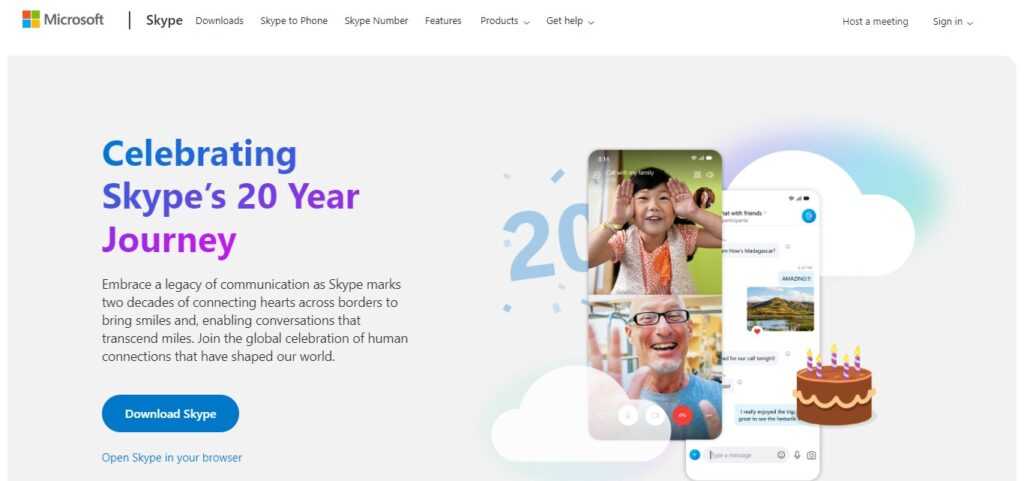
Skype’s corporate utility is further enhanced by its integration with Microsoft Office applications, which make document sharing and collaboration easier. The platform ensures communication flexibility by being accessible on multiple devices, such as PCs, tablets, and smartphones. Skype is a strong substitute for WhatsApp Messenger because of its many features and cross-platform adaptability. It may be used for a variety of communication purposes.
2.Wire
Wire stands out as a strong substitute for WhatsApp Messenger, providing a feature-rich and safe communication platform. Wire’s dedication to security and privacy is one of its standout features; it offers end-to-end encryption for audio, video, and message communications. The emphasis on safeguarding user data is appealing to individuals who value privacy in their communications. Another feature that sets Wire apart is its slick, intuitive interface, which is both user-friendly and packed with features.
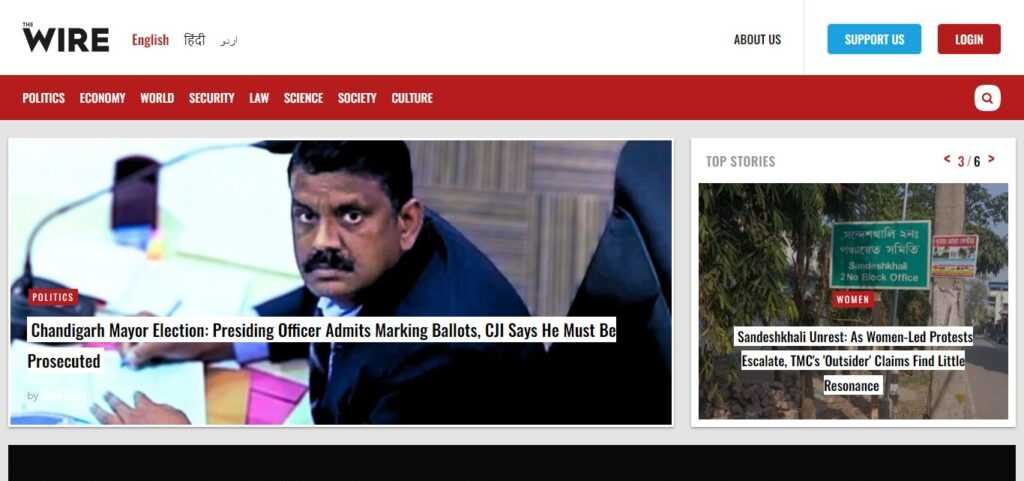
Wire meets corporate and personal communication demands with its high-quality audio and video conversations, instant messaging, and file sharing features. Its compatibility with several platforms guarantees accessibility on different devices, which adds to its ease. Because of its dedication to open-source development, Wire’s user base is more transparent and trustworthy. As a result, Wire stands out as a strong and safe substitute for WhatsApp Messenger for people looking for one.
3.Kik
Offering users a different messaging experience from WhatsApp Messenger, Kik stands out as a standout and practical substitute. Kik is unique in that it emphasises anonymity and lets people interact without requiring a phone number. People who value their privacy and would rather keep their personal contact information private may find this option appealing. Kik is an easy-to-use interface that emphasises group chats, sharing of multimedia, and interactive elements like games and stickers.

The platform’s extensive appeal can be attributed to its cross-platform compatibility, which guarantees accessibility across multiple devices. The unique feature of Kik is its integrated chatbots, which let users engage with entertainment and automated services right within the app. Kik presents a welcome substitute for those looking for a harmonious blend of interactive elements, community engagement, and privacy, even in the face of WhatsApp’s continued dominance.
4.Hangouts
Hangouts is a capable substitute for WhatsApp Messenger, providing a feature-rich communication tool supported by Google’s vast network. Preferred by users who are heavily involved in the Google ecosystem, Hangouts is known for its adaptability and easy integration with Gmail and other Google services. Its capabilities, which give consumers a well-rounded communication experience, include phone calls, video calls, and instant messaging. Group chats work well with Hangouts, making it simple for friends, family, and coworkers to coordinate.

Additionally, it is compatible with multiple platforms, allowing users to access it from PCs and cellphones alike. While Hangouts is a more appealing option for organisations seeking unified communication solutions, WhatsApp still holds a dominant position in certain locations due to its connection with Google Workspace (previously G Suite). Because of Hangouts’ dependability, intuitive layout, and seamless interaction with other Google services, it’s a strong contender for anyone looking for a complete messaging solution.
5.Line Messaging app
Offering a feature-rich and culturally diversified communication platform, the Line Messaging software stands out as a formidable substitute for WhatsApp Messenger. With its diverse features, which include free audio and video conversations, instant messaging, and multimedia sharing, Line—which has its roots in Japan—has become well-known throughout the world. With its wide sticker collection and colourful themes, Line sets itself apart and lets users add unique touches to their chats. The app’s overall usefulness is improved with group chat capability and smooth third-party service integration.
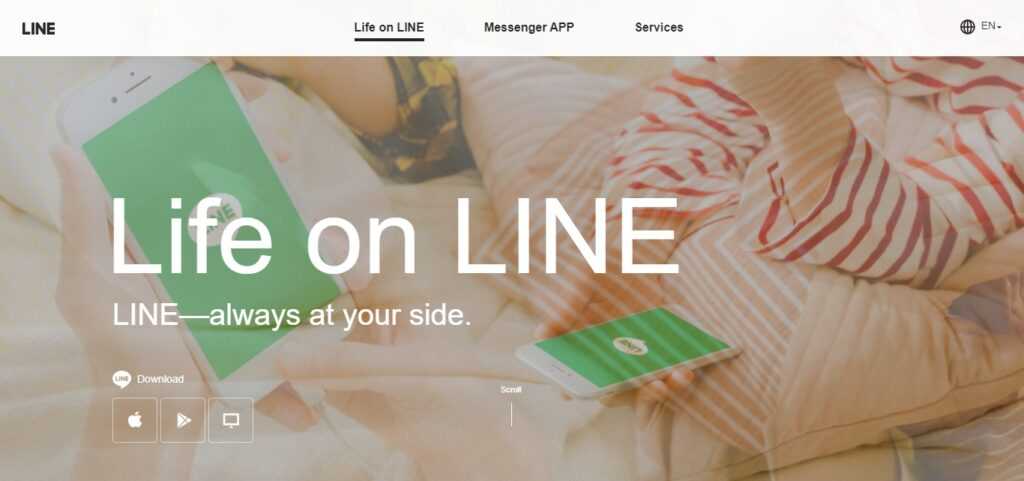
Line’s dedication to safeguarding user privacy is apparent in its end-to-end encryption for private conversations, guaranteeing a safe and secure communication exchange. With the addition of its Timeline function, which allows users to share updates and multimedia content with their connections, Line has also developed into a social media platform. Because of its cross-platform interoperability, which guarantees accessibility on a variety of devices, Line is an appealing option for consumers looking for a vibrant and interesting WhatsApp Messenger substitute.
6.WeChat
WeChat is a strong substitute for WhatsApp Messenger, providing a feature-rich and all-encompassing platform that goes far beyond texting. Tencent created WeChat, which is now well-known worldwide and is a social and communication powerhouse in China. WeChat incorporates a number of functions, including social media capabilities, mobile payments, and even mini-programs for other services, in addition to texting, voice, and video calling. By enabling users to exchange updates, pictures, and multimedia files, the app’s Moments feature fosters a more sociable environment.
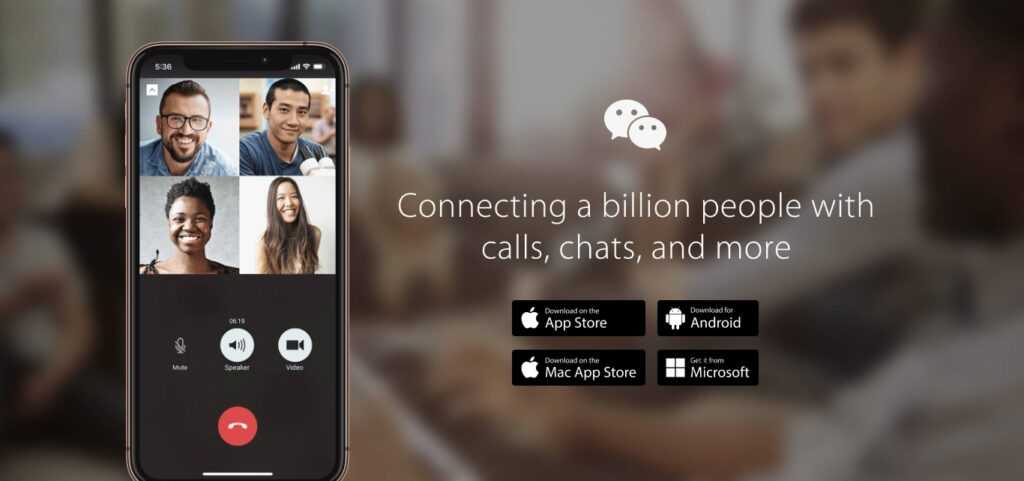
WeChat Pay is a flexible tool that can be used for both personal and professional purposes because it makes transactions easy. The app’s strong security features, which include texting that is encrypted from end to end, add to its allure. WeChat is a strong substitute for WhatsApp, particularly in areas where its influence is more pronounced, because to its comprehensive approach that offers users an all-in-one solution for social networking, communication, and daily tasks.
7.Discord
Discord shows out as a distinct and interesting substitute for WhatsApp Messenger, especially when it comes to online gaming and communities. Whereas WhatsApp is mostly meant for private messaging, Discord serves a wider range of users by providing a voice, video, and text communication platform among groups called servers. Discord’s greatest asset is its adaptability, enabling users to start and join servers centred around common hobbies, gaming communities, or cooperative initiatives. The application facilitates instantaneous conversation while playing, augmenting the user’s gaming encounter.

Discord is a popular choice among gamers, content makers, and a wide range of interest groups because of its user-friendly design, adaptable server settings, and features like voice channels and screen sharing. Discord promotes community by allowing a great degree of customisation and server moderation, in contrast to WhatsApp. Discord stands out as a strong substitute even though the two platforms have different uses, especially for those looking for a vibrant and community-driven messaging environment.
8.Facebook Messenger
As a well-known and feature-rich substitute for WhatsApp Messenger, Facebook Messenger offers users a complete communication tool that is included into the larger Facebook network. Messenger facilitates seamless communication between users via text messaging, voice and video conversations, and multimedia sharing by utilising Facebook’s vast user base. It’s convenient for interacting with friends and family because of its user-friendly layout and the option to send messages without using phone numbers. Group chats are another feature that Messenger offers, making coordination and cooperation simple.
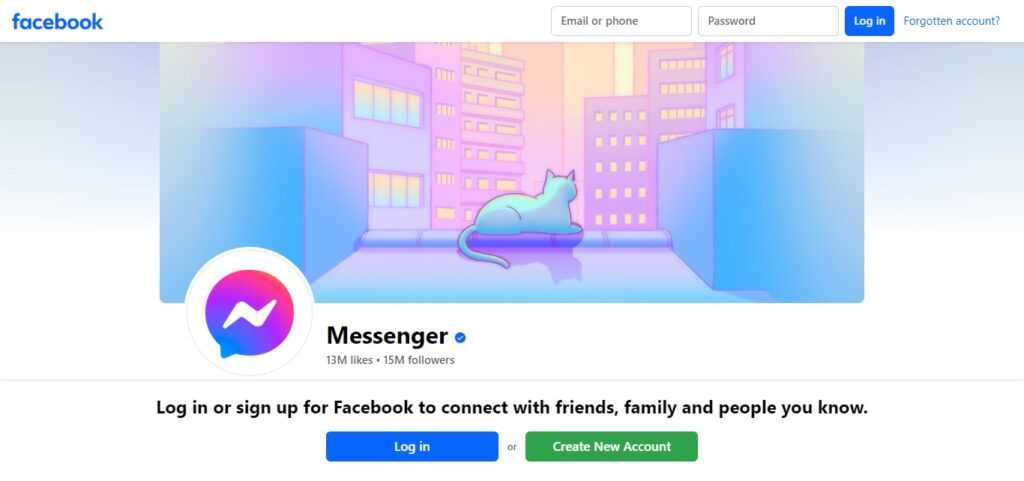
Thanks to the app’s Facebook integration, sharing links, updates, and photographs is easy. Additionally, Messenger Rooms provide a feature-rich and adaptable video conferencing solution, making them a good choice for both personal and business use. Facebook Messenger’s vast feature set and seamless interaction with the larger Facebook network make it an appealing substitute for consumers looking for a more comprehensive chat experience, even though WhatsApp is still widely used.
9.Wickr
Wickr is a great substitute for WhatsApp Messenger, particularly for individuals who value confidentiality and safe communication. Wickr prioritises end-to-end encryption to guarantee the privacy and security of conversations, files, and messages against unauthorised access. Wickr’s dedication to security makes it especially desirable for people and companies who require sensitive communication. With the app’s self-destructing message feature, users can increase their level of privacy by having communications automatically deleted after a predetermined amount of time.

In addition, file sharing, encrypted video and audio calls, and teamwork tools are supported by Wickr. Users who are worried about their online privacy are catered to by the platform’s emphasis on anonymity and data protection. Wickr is a tempting option for individuals looking for a reliable and private messaging solution, even though it isn’t as popular as WhatsApp due to its commitment to security and privacy.
10.iMessage
Apple’s messaging app, iMessage, is a good substitute for WhatsApp Messenger, especially for those who use Apple products. iMessage, which is only available on iOS and macOS devices, easily connects with SMS and lets users send text messages, images, videos, and more across cellular and Wi-Fi networks. iMessage sets itself apart with its end-to-end encryption, guaranteeing the privacy and security of messages. Additionally, the platform offers a number of rich media capabilities that give talks a fun and engaging element, like Memojis, Animojis, and Digital Touch.
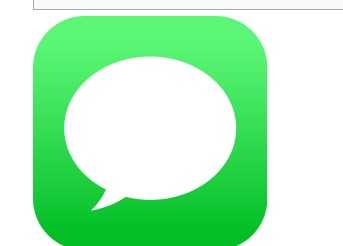
Moreover, iMessage has features like the capacity to respond to particular messages, read receipts, and typing indicators. The smooth connection with other Apple services, like as iCloud, improves the user experience even more. Despite the fact that WhatsApp is more cross-platform, iMessage is an appealing substitute for users who are deeply involved in the Apple ecosystem because of its close integration with Apple products and dedication to consumer privacy.
11.Snapchat
If you’re looking for a messaging app that is visually stimulating and active, Snapchat is a unique and interesting substitute for WhatsApp Messenger. Snapchat’s distinctive attribute is the transient quality of its content, which permits users to share images and movies that vanish after a short duration of viewing. Conversations become more genuine and spontaneous as a result of its fleeting nature. In order to enhance communication and make it more engaging and expressive, the platform also includes a variety of interactive components including stickers, lenses, and filters.
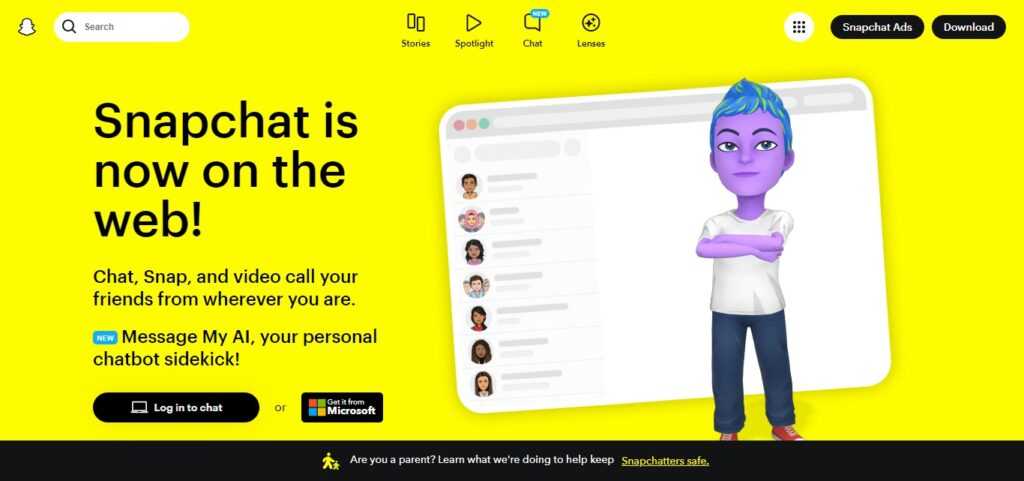
Snapchat Stories give a narrative element to moment sharing through a chronological accumulation of multimedia content. The software stands out because to its younger user base and emphasis on multimedia and real-time conversation. Snapchat’s emphasis on visual communication and cutting-edge features set it apart from WhatsApp, which takes a more traditional approach. This makes Snapchat a dynamic and enticing alternative for individuals who value creativity and quick, transient interactions.
12.Signal private Messenger
Signal Private Messenger is a great substitute for WhatsApp Messenger, especially for individuals who value security and privacy when communicating online. Signal uses end-to-end encryption for all calls, messages, and shared media, guaranteeing that only the intended receivers can access the content. Signal was developed with a strong dedication to user data privacy. Because of its commitment to security, Signal has earned the respect and confidence of organisations and people that value privacy. The app prioritises functionality above needless frills, offering seamless text messaging, phone and video conferencing, and multimedia sharing through its basic UI.

The fact that Signal is open-source adds even more transparency by enabling users to examine the code for security guarantees. Signal is an independent non-profit organisation whose main goal is to protect user privacy instead of making money off of data. Although WhatsApp has a larger user base, Signal is a great substitute for people who value the highest level of secrecy in their online interactions because of its unwavering dedication to privacy and encryption.
13.Spike
Spike distinguishes itself as a novel and invigorating substitute for WhatsApp Messenger, providing a contemporary and effective method of email correspondence. Spike, in contrast to conventional email platforms, turns emails into chat-like exchanges, resulting in a user experience that is more efficient and clear. The software gives customers a single platform for business and personal communications by seamlessly integrating audio, video, and instant messaging within the email experience. Spike’s “Priority Inbox” function helps users focus on important messages by classifying emails according to their significance, hence eliminating clutter.
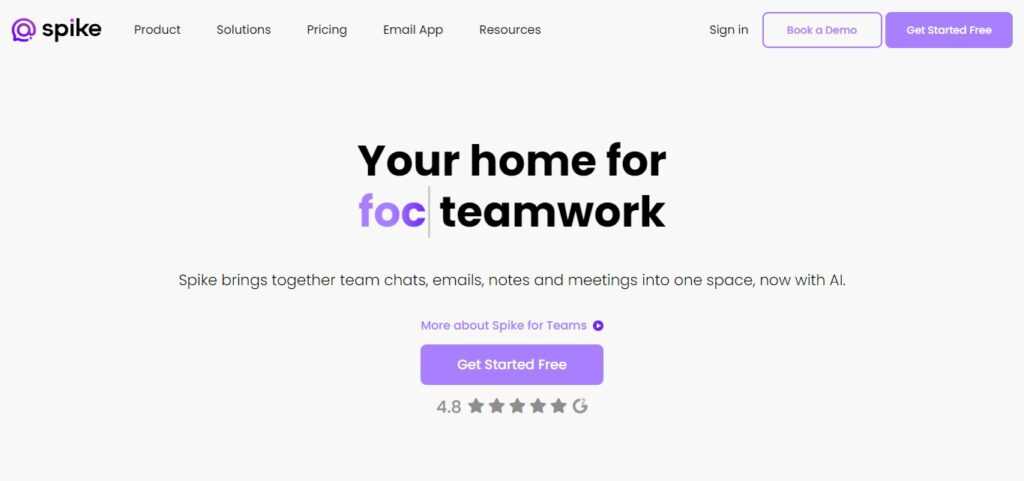
Additionally, Spike facilitates real-time collaboration by allowing file attachments and notes to be shared, which increases productivity for both individuals and teams. Its emphasis on a simple, chat-centric interface makes it stand out, and its interoperability with a range of devices guarantees versatility. Spike’s reimagining of email communication makes it a great substitute for people looking for a contemporary and effective way to handle their digital correspondence, even though WhatsApp is still the leader in mobile messaging.
14.Bridgefy
In situations where standard messaging apps encounter connectivity issues, Bridgefy emerges as an intriguing substitute for WhatsApp Messenger. Through peer-to-peer mesh networking, Bridgefy enables communication between users without the need for a centralised server or an internet connection. This innovative method works well in scenarios where there is little to no internet access, which makes it a sensible option for events, crises, or densely crowded places. Through the use of Bluetooth and Wi-Fi connectivity, the programme allows devices to communicate directly with one another, forming a decentralised messaging network.
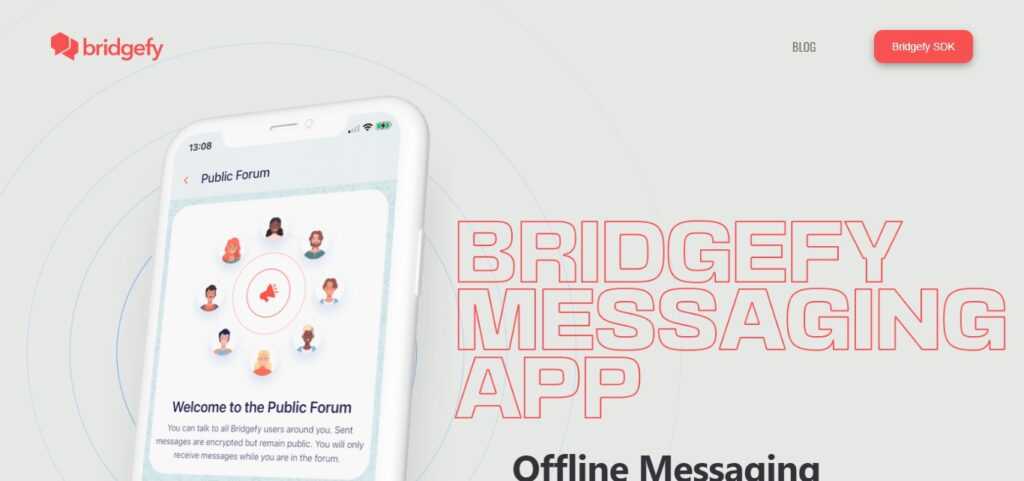
Although Bridgefy might not have as many features as popular messaging apps, its focus on decentralised and offline communication makes it a strong option in some situations. Bridgefy is a dependable substitute for situations in which conventional messaging applications might not function properly. It demonstrates creativity in resolving connectivity issues and offers a workable option for consumers looking for other ways to communicate in difficult settings.
15.KakaoTalk
With its abundance of features, KakaoTalk proves to be a strong substitute for WhatsApp Messenger, especially in South Korea and other Asian countries where it is highly favoured. This messaging programme, created by Kakao Corporation, integrates texting, phone and video conversations, and several sharing options for multimedia files in a seamless manner. The most notable aspect of KakaoTalk is the wide selection of animated stickers and emoticons that let users express themselves artistically during conversations.
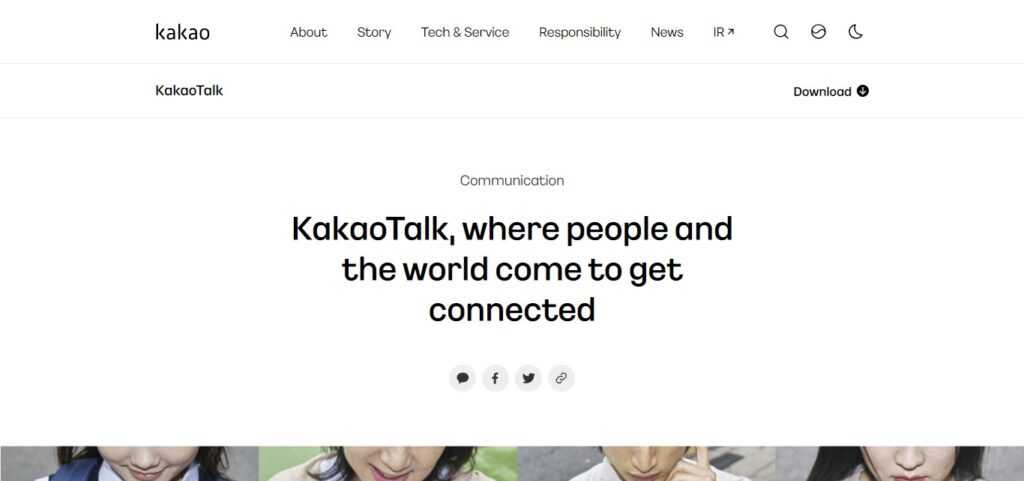
To provide users with a more complete experience, the platform also incorporates other services like KakaoPay for mobile purchases and KakaoStory for social updates. The app’s open chat rooms and group chat features add to its adaptability for both personal and business use. Although WhatsApp is the most popular messaging app worldwide, users who value a combination of integrated services and expressive communication on a single platform may find KakaoTalk to be a compelling alternative due to its robust presence in particular regions and distinctive features.
16.Keybase
Keybase is a noteworthy substitute for WhatsApp Messenger that prioritises security and end-to-end encryption. Keybase, which prioritised privacy in its development, offers users a safe space for file sharing, phone and video conversations, and messaging. Only the intended recipients will be able to view the content of messages and shared files thanks to end-to-end encryption. Keybase is unique in that it incorporates public key verification, enabling users to verify the legitimacy of their connections and boosting communication trust.
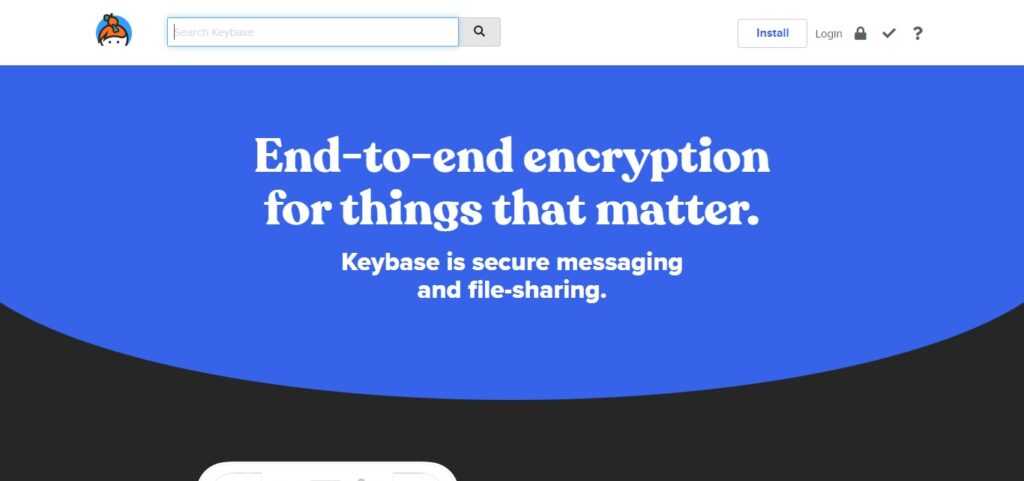
Keybase also facilitates team collaboration with features like secure group chat and secured file repositories. The platform’s open-source design, which allows users to review the code for security guarantees, demonstrates its dedication to transparency. Although WhatsApp is the industry leader, Keybase is a great substitute for consumers looking for a highly private and secure messaging app because of its commitment to encryption and privacy.
17.Slack
Slack is a strong substitute for WhatsApp Messenger, especially when it comes to teamwork and business communication. Slack, which offers a centralised platform for team communication, is designed for professional situations, whereas WhatsApp is mostly focused on personal messaging. Slack is excellent because of its well-structured channel architecture, which lets users designate specific areas for certain teams, projects, or subjects. To improve efficiency and teamwork, the platform offers file sharing, real-time messaging, and interfaces with numerous third-party programmes.

Slack’s extensive notification settings and searchable message history facilitate effective communication in work environments. Additionally, the platform provides tools like direct messaging and threaded chats, which provide teams more communication options. While WhatsApp may have a larger user population, Slack is a better option for individuals looking for a feature-rich communication application for work environments because of its unique focus on team collaboration and variety of productivity tools.
18.BBM
BlackBerry Messenger, or BBM, is a distinctive and effective substitute for WhatsApp Messenger, especially for those who value a safe and professional texting service. Though it was first created for BlackBerry handsets, BBM has spread to other platforms and kept its reputation as a secure communication tool. End-to-end encryption is one of the elements that BBM prioritises to protect user privacy and keep communications private and safe. Along with its own features, the network offers BBM Channels, which let users interact with communities, influencers, and marketers.
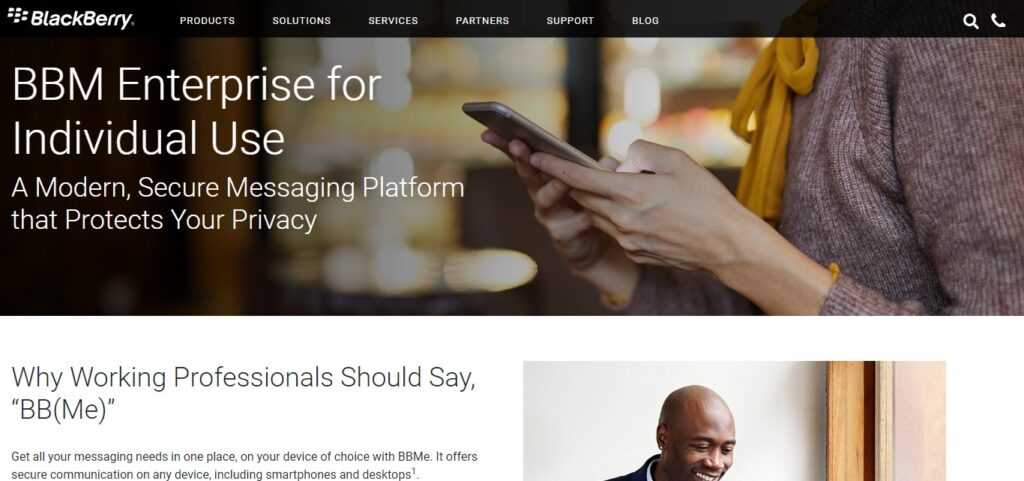
Though BBM’s historical affiliation with BlackBerry’s strong security measures makes it a tempting choice for those who prioritise privacy and prefer a business-oriented and professional messaging experience, WhatsApp is still utilised more commonly worldwide. Mainstream apps continue to compete with BBM, but users still choose it because of its distinctive features and security measures.
19.ChatON
Once upon a time, Samsung’s ChatON was a promising substitute for WhatsApp Messenger, providing a wide range of functionalities for conversation and sharing media. Despite its goal of offering a full messaging experience by enabling users to send text messages, share multimedia, and hold group conversations, ChatON struggled to become widely used. Among the noteworthy features was the ability to make “Anicon” animations, which gave talks a unique flair.

Samsung eventually stopped supporting ChatON in 2015, despite its potential, and advised users to switch to other chat services. Even while WhatsApp continues to rule the messaging space, ChatON’s brief life emphasises how competitive the industry is and how difficult it is for other platforms to gain a sizable user base.
20.FMWhatsApp
Unlike the official WhatsApp Messenger, FMWhatsApp is a customised version of WhatsApp that offers users more features and customisation possibilities. Thanks to its many customisation options and improved privacy features, FMWhatsApp has become more and more popular among users looking for a more customised chat experience. With this updated version, users may hide their online status, customise the app’s look, and access features like emoticons, themes, and fonts.

Furthermore, FMWhatsApp offers sophisticated privacy options, including the capacity to conceal double ticks, blue ticks, and the “typing” state. Even though FMWhatsApp has a lot of customisation options and special features, it’s important to remember that utilising altered messaging apps may be against the terms of service and jeopardise user security. If users want the safest and most dependable texting experience, they should be cautious and give certified app versions top priority.
21.Ginlo Private Messenger
Ginlo Private Messenger emphasises security and confidentiality in digital communication, positioning itself as a powerful and privacy-focused substitute for WhatsApp Messenger. Ginlo, created by Brabbler AG in Germany, is built with a strong dedication to end-to-end encryption, guaranteeing the security and privacy of any communications and media shared within the app. With features like password-protected conversations, self-destructing communications, and anonymous account creation, the platform gives users more control over how they communicate.

Ginlo maintains the essential features of file sharing, phone and video conversations, and messaging, but stands apart for its commitment to user privacy and adherence to stringent German data protection regulations. Ginlo Private Messenger stands out as a notable substitute in the messaging app market for consumers who value a private and secure messaging experience without sacrificing necessary functionality.
22.Telegram
As a feature-rich and appealing substitute for WhatsApp Messenger, Telegram provides users with a safe and flexible messaging experience. Telegram, which places a strong focus on speed, enables users to send files, messages, images, and videos swiftly and effectively. Its unique feature of allowing up to 200,000 members to form group conversations makes it ideal for community participation and cooperation. Additionally, Telegram offers end-to-end encryption for private conversations, guaranteeing the privacy of user exchanges.
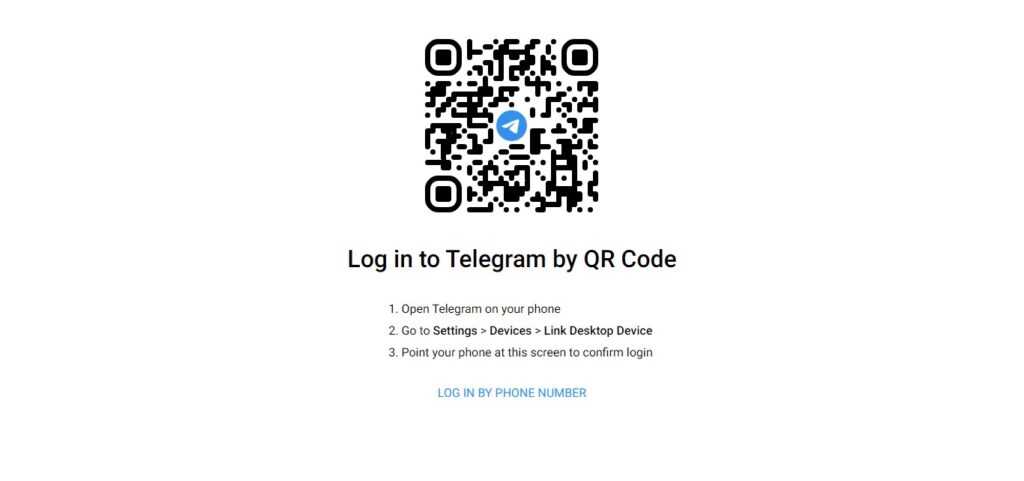
The software also allows users to broadcast messages to an infinite number of subscribers via channels. Due to its cloud-based architecture, Telegram offers a user experience that is both convenient and easily accessed across many devices. While Telegram and WhatsApp both provide basic messaging features, Telegram is a better option for consumers looking for a feature-rich and adaptable messaging app because of its extra functionality, dedication to user privacy, and focus on group chat.
23.Threema
Threema distinguishes itself as a privacy-conscious substitute for WhatsApp Messenger by providing users with a private and secure messaging environment. Threema was created with a strong focus on data security. It has end-to-end encryption for all conversations, texts, and shared media, guaranteeing that user communication is private and safe. Threema stands apart because to its proprietary ID system, which adds an additional degree of secrecy by enabling connections without phone numbers. The software delivers a complete messaging experience with features including group chats, audio calls, and multimedia sharing.
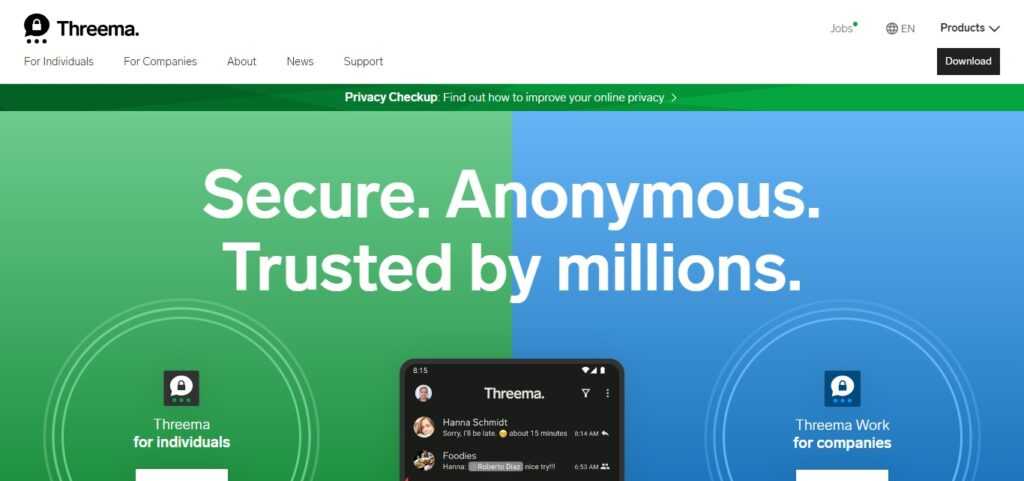
Renowned for its dedication to open-source development, Threema lets people examine the code for clarity and security assurance. Threema stands out as a strong option for people and businesses that value privacy and are looking for a different messaging service that prioritises data security.
24.Riot.im
A flexible and open-source substitute for WhatsApp Messenger, Riot.im emphasises decentralised communication using the Matrix protocol. Riot.im stands out by emphasising end-to-end encryption, which guarantees safe phone, video, and message communications. The platform is appropriate for both personal and business use because it allows file sharing, group chat, and interaction with numerous third-party services.

Riot.im stands out for its commitment to open standards and decentralization, allowing users to communicate across different messaging platforms that adhere to the Matrix protocol. Its customizable interface and robust collaboration tools, including threaded conversations and widget integrations, contribute to its versatility. While WhatsApp dominates the mainstream market, Riot.im appeals to users seeking a privacy-centric, decentralized, and feature-rich alternative that aligns with the principles of open-source communication.
25.Zalo
Zalo shows up as a strong substitute for WhatsApp Messenger, especially in areas like Vietnam where it has become very popular. Zalo, created by the Vietnamese business VNG Corporation, provides a feature-rich messaging experience with features akin to those of WhatsApp, such as multimedia sharing, phone and video conversations, and text messaging. With its lively and regionalized style that includes animated stickers, themes, and games that appeal to its user base, Zalo stands out.

The app’s focus on security includes end-to-end encryption for messages, ensuring user privacy. Zalo also integrates seamlessly with other services, such as Zalo Pay for mobile payments and Zalo Shop for online shopping. While WhatsApp is a global leader, Zalo’s success lies in its regional appeal, cultural customization, and a feature-rich platform that caters to the preferences of users in specific geographical areas.
26.Dust
Dust, formerly known as Cyber Dust, stands out as a unique and privacy-centric alternative to WhatsApp Messenger. Developed with a strong emphasis on security and confidentiality, Dust is designed to provide users with an ephemeral messaging experience. The app ensures that messages disappear after a set period, preventing them from being stored on servers or devices.
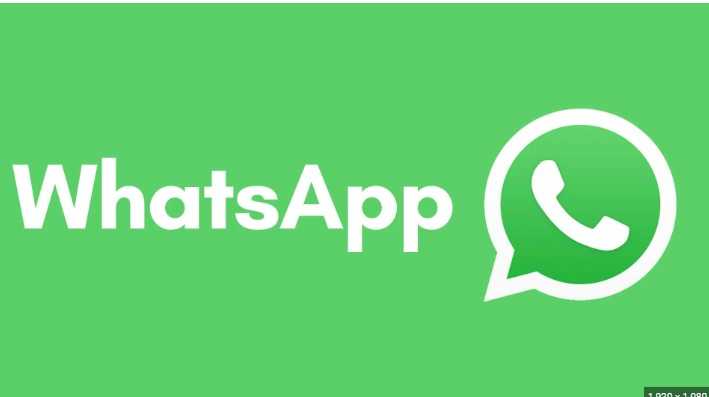
Dust also incorporates end-to-end encryption for added privacy, and it notifies users if someone attempts to take a screenshot of their messages. Additionally, the platform allows users to retract sent messages, providing a level of control over their communication. While WhatsApp dominates the market, Dust’s commitment to ephemeral messaging and heightened security makes it an intriguing choice for individuals who prioritize privacy and seek a messaging platform with a focus on confidentiality.
27.Tox
Tox stands out as a compelling and privacy-focused alternative to WhatsApp Messenger, designed to provide users with a secure and decentralized messaging experience. Operating on a peer-to-peer network, Tox enables direct communication between users without relying on a centralized server. This decentralized approach enhances user privacy by reducing the risk of data interception or surveillance.

Tox incorporates end-to-end encryption for text messages, voice calls, and video chats, ensuring that only the intended recipients have access to the content. The platform also emphasizes user anonymity by allowing users to create accounts without the need for personal information. While Tox may not have the widespread recognition of WhatsApp, its commitment to privacy, decentralization, and open-source development makes it an appealing choice for individuals seeking a secure and independent alternative for digital communication.
28.Jitsi Meet
Jitsi Meet stands out as a robust and open-source alternative to WhatsApp Messenger, especially for users looking for secure and privacy-focused video conferencing solutions. Developed by the Jitsi community and powered by the WebRTC protocol, Jitsi Meet allows users to conduct video meetings, conferences, and webinars with a high degree of customization and flexibility. What sets Jitsi Meet apart is its commitment to open-source development, allowing users to inspect the code for transparency and security assurances.

The platform requires no account creation or registration, contributing to user privacy. With features like end-to-end encryption, screen sharing, and chat functionality, Jitsi Meet is suitable for both personal and professional use. While WhatsApp is more prevalent in text messaging, Jitsi Meet excels in providing a reliable and secure alternative for video conferencing and online collaboration.
29.Marco Polo
Marco Polo offers a distinctive and engaging alternative to WhatsApp Messenger, providing users with a video messaging platform that prioritizes asynchronous communication. Unlike the real-time nature of WhatsApp, Marco Polo allows users to send video messages at their convenience, fostering more thoughtful and deliberate interactions.
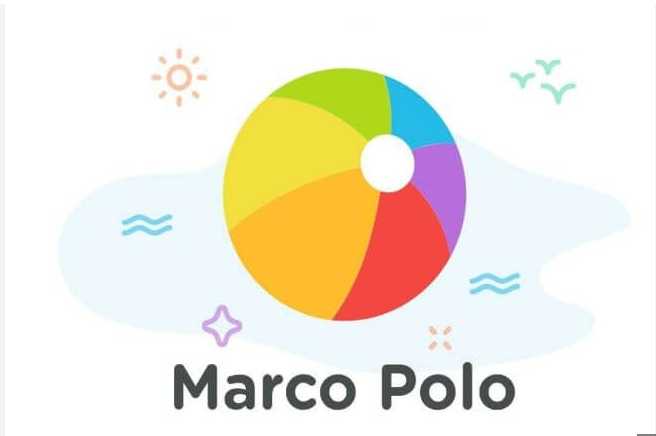
Users can engage in conversations by recording and responding to video messages, creating a dynamic and personal exchange. The app also supports group chats, making it ideal for staying connected with friends, family, or colleagues. While WhatsApp excels in instant messaging, Marco Polo’s focus on video communication sets it apart, offering users a more immersive and authentic way to share moments and connect with others in a visually engaging format.
30.Tencent QQ
Tencent QQ stands out as a comprehensive and feature-rich alternative to WhatsApp Messenger, particularly in China and other parts of Asia where it has garnered immense popularity. Developed by Tencent, QQ offers a wide range of communication features, including text messaging, voice and video calls, and multimedia sharing. With a user-friendly interface and vibrant social features, QQ provides a unique platform for users to connect and share experiences. The app also integrates various services such as QQ Music, games, and online shopping, contributing to its versatility.
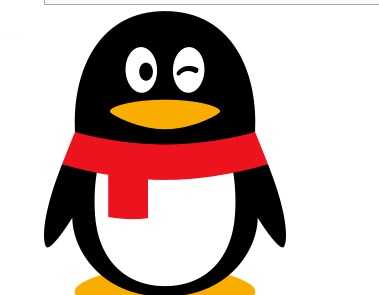
QQ’s extensive user base and localization efforts, including the incorporation of culturally relevant stickers and themes, make it a preferred choice in regions where WhatsApp may not be as dominant. While WhatsApp excels globally, Tencent QQ’s localized approach and diverse set of features position it as a robust alternative for users in specific geographical areas, especially in Asia.
What Makes An Alternative To WhatsApp a Good Choice?
Selecting a messaging software to replace WhatsApp requires taking into account a number of important aspects in order to provide a thorough and safe communication experience. Security is a major factor that must be taken into account in order to protect private conversations and sensitive data. Robust alternatives like Signal or Telegram prioritise end-to-end encryption so that the messages’ content is only accessible by the intended recipients. This feature guards against unwanted access and improves user privacy.
User-friendliness is yet another important feature of a trustworthy messaging software. An interface that is well-thought-out and easy to use enhances the user experience by facilitating communication and navigation. Telegram and similar apps are excellent at offering a user-friendly interface that even non-techies can utilise to access features and settings. People can quickly adjust to the new messaging environment because to its ease of use, all without sacrificing functionality.
Cross-platform interoperability is necessary to support users on different operating systems and devices. Media and messages should synchronise effortlessly between desktops, tablets, and cellphones in an effective substitute. This guarantees an accessible and constant communication infrastructure, enabling users to maintain connectivity irrespective of the device they are utilising. For example, Telegram is excellent at offering this kind of versatility, making it simple for users to move between devices.
A valuable substitute should also have features that accommodate different communication styles. The app should meet the needs of a wide range of users, whether it is through multimedia sharing, voice and video calling, or cutting-edge features like Channels for message broadcasting to a wider audience. By customising the messaging experience to meet the individual needs of the user, this means that switching from WhatsApp to the alternative is not only smooth but also full of extra features.
In conclusion, a strong alternative to WhatsApp integrates a variety of features, a user-friendly interface, cross-platform compatibility, and a dedication to security. Maintaining equilibrium between these components guarantees a message platform that fulfils fundamental communication requirements while also improving the user experience in a safe and adaptable way.
How To Experience Unparalleled Productivity on WhatsApp
More than 2 billion people use the messaging app WhatsApp across more than 180 countries. You may make audio or video calls, send and receive text and voice messages, and more using WhatsApp. Additionally, users can exchange locations, documents, and even photos. WhatsApp has a number of features that improve business talks and enhance regular communication. Here are a few typical advantages of the texting app.
broad user base: Most are, a number of individuals you know are already using WhatsApp if you’re just now signing up.
stable implementation: An app with a big user base needs to be reliable all the time. WhatsApp works hard to keep its user base happy and maintains the stability of the application.
infinite dialogue: There is no communication limit with WhatsApp, in contrast to carrier-based SMS systems. Anytime, wherever, you can message anybody you choose.
Price: WhatsApp is available to individual users for free. Additional features are not available to users at a charge. Every user has a same experience.
message across borders: In addition to being free, users can text contacts via WhatsApp.
Conclusion Best WhatsApp Messenger Alternative
In conclusion, personal tastes, needs for particular forms of communication, and priorities all play a role in choosing the best alternative to WhatsApp Messenger. Numerous messaging apps compete to provide distinctive features, more security, and better user experiences as the digital landscape changes. Strong substitutes that prioritise user privacy, end-to-end encryption, and cutting-edge features are Signal and Telegram.
Every option—Wire, Threema, or Element—has advantages over the others and may be tailored to suit the needs of various user profiles. It’s critical to take into account elements like the app’s general user interface, group chat functionality, cross-platform compatibility, and security measures.
Keep up with upgrades, user reviews, and new technologies while weighing your options to be sure the app you select will meet your changing communication needs. The most excellent WhatsApp substitute is the one that fits in with your digital habits naturally and offers a safe, feature-rich, and entertaining chatting experience.
FAQ Best WhatsApp Messenger Alternative
Which messaging apps are considered the best alternatives to WhatsApp?
Popular alternatives include Telegram, Signal, LINE, Viber, WeChat, and Facebook Messenger. The choice depends on individual preferences and specific requirements.
Is end-to-end encryption important in a messaging app?
Yes, end-to-end encryption is crucial for ensuring the privacy and security of your messages. Apps like Signal and Telegram prioritize this feature to protect user communications.
Can I use an alternative messaging app for both personal and business communication?
Many messaging apps, such as Telegram and Slack, cater to both personal and business communication needs. Evaluate the app’s features to determine its suitability for your intended use.
Do these alternatives support multimedia sharing?
Yes, most alternatives support multimedia sharing, including photos, videos, and audio messages. Consider the file size limits and media capabilities when choosing an app.
Are there alternatives that support group chats and collaboration?
Yes, many alternatives support group chats and collaboration features. Apps like Slack, Discord, and Telegram offer robust group communication tools suitable for both casual and professional use.











